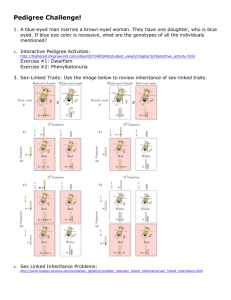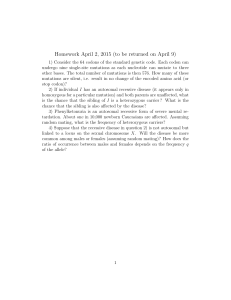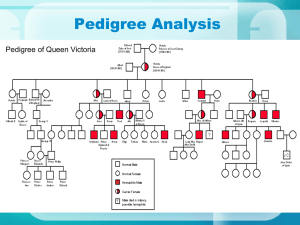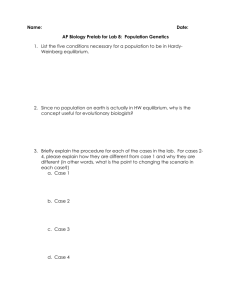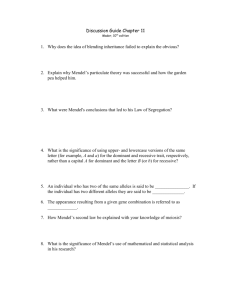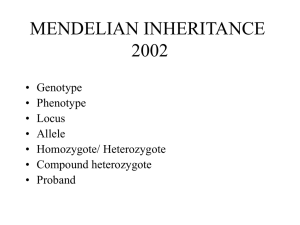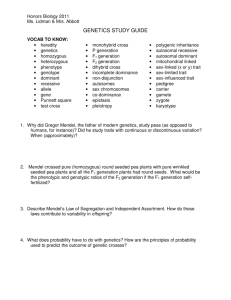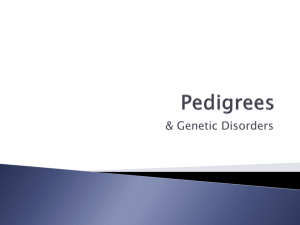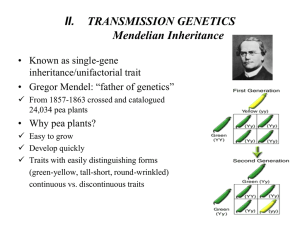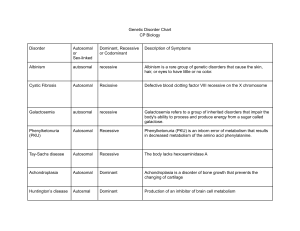Pedigree Analysis
advertisement
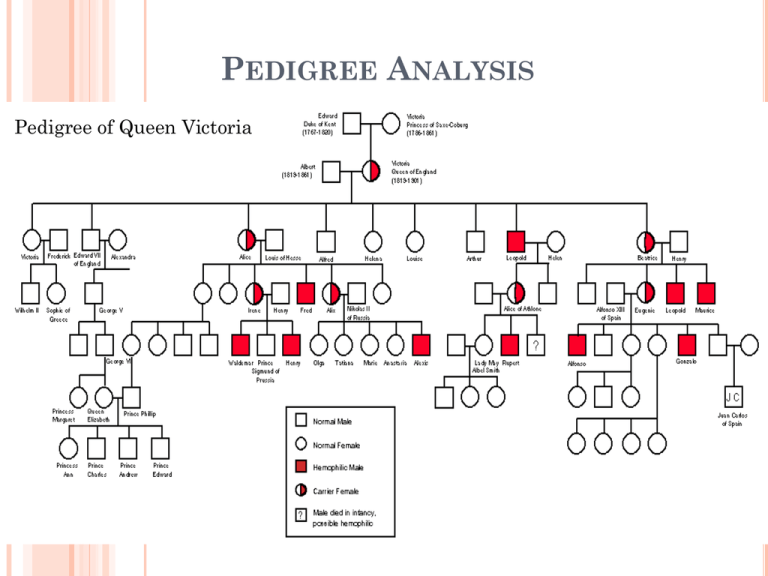
PEDIGREE ANALYSIS Pedigree of Queen Victoria Have you ever seen a family tree… do you have one?? Graphic representation of family inheritance. INHERITANCE PATTERNS: Autosomal dominant: The disease is passed from the father (II-3) to the son (III-5), this never happens with X-linked traits. The disease occurs in three consecutive generations, this is rare with recessive traits. Males and females are affected, with roughly the same probability. –Examples: Polydactyly –Huntington’s disease INHERITANCE PATTERNS: Autosomal recessive Males and females are equally likely to be affected. The trait is characteristically found in siblings, not parents of affected or the offspring of affected. Parents of affected children may be related. The rarer the trait in the general population, the more likely a consanguineous mating is involved. –Cystic fibrosis –Tay-Sach’s disease INHERITANCE PATTERNS: Sex-linked recessive conditions The disease is never passed from father to son. Males are much more likely to be affected than females. •All affected males in a family are related through their mothers. –Examples: –Color-blindness Trait or disease is typically passed from an affected grandfather, through his carrier daughters, to half of his grandsons. –Duchenne Muscular Dystrophy METHOD 1: PROCESS OF ELIMINATION •X-linked recessive •Autosomal dominant •Autosomal recessive METHOD 2: RECOGNIZING PATTERNS •X-linked recessive •Autosomal dominant •Autosomal recessive PRACTICE! •X-linked recessive •Autosomal dominant •Autosomal recessive
